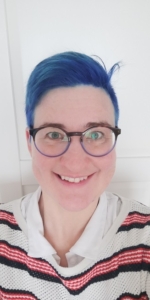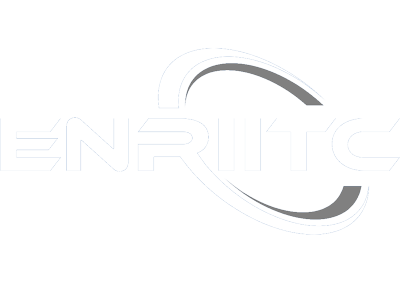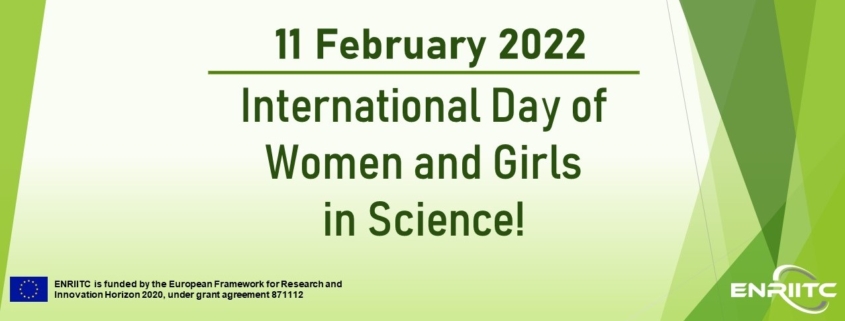International Day of Women and Girls in Science: an interview with Sonia Utermann!
“The only strategy I have yet discovered that really helps is ‘paying forward’. ‘Paying forward’ means women supporting women in small but meaningful ways. A little bit of solidarity goes a long way”.
To mark International Day of Women and Girls in Science, which is celebrated on 11 February 2022, ENRIITC is publishing something extra special: an interview with Sonia Utermann!
In addition to being an active member of the ENRIITC community since the beginning, Sonia is part of the Big Science Business Forum (BSBF) organising committee. We are thrilled to see that, for the first time, the theme “Women in big science” will be covered in a dedicated webinar that is scheduled for 11 February 2022 (registration open here).
In this ENRIITC interview, Sonia shares her personal experience being a woman working in science. We hope that it resonates with other women who are already working, or considering working, in science.
INTERVIEW
Can you tell us a bit about yourself? What’s your name, nationality and job role?
Thank you for inviting me to this interview. I’m Sonia Utermann, and I work in project management at an internationally owned particle accelerator. I don’t think nationality should matter, especially not in science; it’s just another barrier.
Can you briefly outline your educational and academic background?
I never planned to become a physicist. I went to university and studied physics because it interested me. I just kept on doing degrees in physics until I got my Ph.D. One day I looked back and realised that I was probably a physicist, despite what the impostor syndrome (so familiar to women in academia) said. In 2020, I got my MBA in engineering management.
Can you tell us about a challenge you’ve faced in your career, and how you overcame it?
It feels like it’s all been a challenge, to be honest! My favourite challenges are the ones I set myself, though.
What’s your role in BSBF and when did you first get involved with them?
I first came across BSBF in 2018. I had been working at the Facility for Antiproton and Ion Research in Europe (FAIR) for six months by then, and I knew enough about the magnitude of the challenges of Big Science procurement to recognise that this event was not to be missed. I contacted the organisers right away. With just three weeks to go before BSBF 2018, the organisers welcomed FAIR on board as an associated member. I can’t imagine the trouble they took to make that possible, but I am grateful to this day. Now FAIR is a full member and co-organiser of the BSBF 2022 in Granada.
I coordinate the FAIR contribution and represent FAIR on the international organising committee. It’s intimidating to be surrounded by such accomplished people in the committee, but I am learning a lot from them. It’s true that you grow with your challenges.
To date, what career project/activity/outcome are you most proud of?
I got my current job because of a hobby I took up during a period of unemployment. Bored and frustrated of being jobless, I signed up for French evening classes and I really threw myself into it; I took exams and everything. It turned out to be the qualification that tipped the balance in my favour. That experience has really impressed on me the importance of pursuing any interest, no matter whether it is “useful”. I’m proud of that realisation. Now I pursue my interests wholeheartedly and unapologetically.
In your experience, do you think the environment for and role of women in science has changed in recent years? If yes, in what ways?
I can’t really answer this, because I have changed, too. Are male colleagues more likely to listen to me because the culture has changed, or have I just become louder/older/fatter/less likely to care if they listen or not? However, I feel confident in saying that not nearly enough has changed. We have to keep pushing, and we have to continue to support one another.
As a successful woman in the generally male-dominated field, have you experienced adversaries due to do your gender? How did you overcome these situations?
Yes, I have always experienced aggression and discrimination. It continues to this day, and it still hurts. The only strategy I have yet discovered that really helps is “paying forward”. “Paying forward” means women supporting women in small but meaningful ways, for example with an invitation to give a talk, with a link to a job vacancy or a grant, through introductions, recommendations or a signal boost when she posts a career success on LinkedIn. A little bit of solidarity goes a long way.
What would it surprise people to know about you?
I can recognise the calls of over 100 European songbirds!
What further changes would you like to see with regards to the role of women in science in the years ahead?
I would like to see gender-based and all other discrimination taken seriously as the catastrophe it is for science and the world. It is not a niche problem. How should we go about dismantling it? Typical scientist answer: that’s not my field! There are plenty of brilliant researchers – many of them women and/or people of colour – who have addressed this question. We should heed their advice.
What advice would you give to young women interested in pursuing a career in science? It can also be a motivational quote for them!
Those young women are brighter and more talented than I will ever be. They don’t need my advice! However, I’m going to take the liberty of addressing the boys and men who are the peers and bosses of those young women. As peers and mentors, you can support girls and women when we set ourselves ambitious challenges. Don’t steal our thunder. Instead, listen to us; support us when we are interrupted and belittled in meetings; give us credit, promotions and pay bonuses for our work. Cite our work. When another man takes our voice, be the one to give it back.
 A huge thanks to Sonia for taking the time to share with the ENRIITC network her experiences, and a big congrats as well for the recent publication of her MBA Engineering Thesis (2021) titled “Fostering Innovation through Big Science Procurement.”
A huge thanks to Sonia for taking the time to share with the ENRIITC network her experiences, and a big congrats as well for the recent publication of her MBA Engineering Thesis (2021) titled “Fostering Innovation through Big Science Procurement.”
ENRIITC is proud and grateful to all the members, partners and collaborators who continuously bring positive contributions to our project.
It is our hope that in the coming years the Big Science industry will see more women working at all levels. As Ursula von der Leyen stated during her speech on gender diversity earlier this year: “Too often, when looking at top positions, men say that it is hard to find women with the right profile. Well, if you are seriously looking for them, you will find them.”






Leave a Reply
Want to join the discussion?Feel free to contribute!